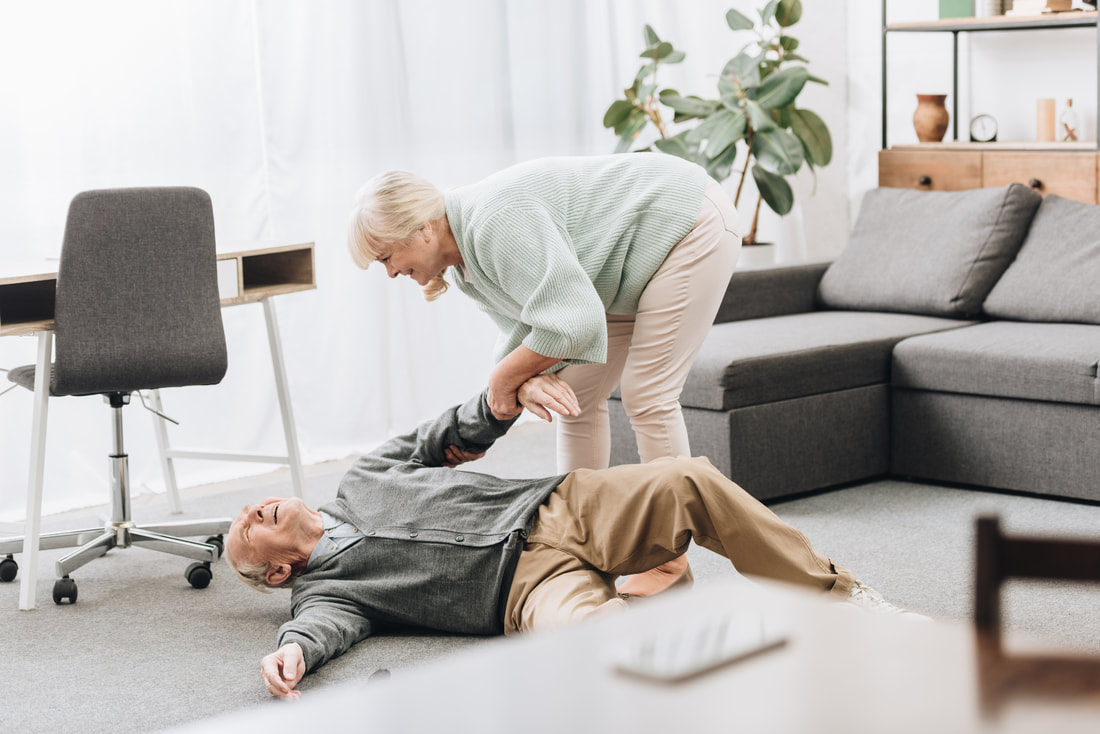|
By Raphael Perlmann
We usually experience problems before we actually understand their cause. However, the best thing you can do towards eradicating a problem is to understand its causes, triggers, and background.
It’s obvious that falls can be disastrous for the elderly. The Center for Disease Control (CDC) put the figure at one in five falls resulting in a serious injury including head injuries and broken bones. Another important reason to ensure preventive measures are in place is that the fear of falling itself can seriously affect an aging adult’s quality of life, reducing them from being active and mobile.
While it might be true that it’s practically impossible to prevent every kind of fall, the good news here is that in every situation it is always possible - and most times relatively easy - to take action and reduce the chance of a serious fall occurring.
There could be many reasons why an aging adult might be falling. Many seniors’ falls will actually be due to a combination of reasons, unique to their circumstances. Of course, it’s a good idea to implement the kinds of generic tips you’ll find listed in fall-prevention pamphlets and advice leaflets, like medication, exercise, home safety checks & vision check-ups. But that won’t be enough if you truly want to make sure an older loved one is in the best position to limit the chances of falling. The best way to go is to learn and better understand why the particular individual you worry for might fall. This is because understanding the specific, personalized reasons for a particular senior person falling gives you a whole bunch of advantages you wouldn’t get by implementing generic advice. To start, you’ll be able to recognize potentially risky situations that apply to this senior - perhaps not others - and take steps to avoid them on a tailor-made basis. Based on your knowledge of your loved one’s character and daily activities, you can also look around the senior’s home and daily environment to identify which fall prevention measures are most likely to prevent accidents. In addition, a large number of falls are related to specific medical conditions and/or medications the person is taking. You can ask a doctor, based on the older person’s medical profile, to identify which of these pose a falling risk, how the fall is likely to happen and how to prevent it in each case. A wealth of personalized information has also come your way if your loved has experienced the misfortune of a fall. By thinking about what actually happened that caused them to fall, you have a very clear idea of their weaknesses - whether it’s related to a time of the day, a specific body position, something to do with medication or a fault in any of their senses. To summarize, learning why older people fall will help you discover why and how the actual person you care about - not the general senior public - is prone to falling, so you can take perfectly matching steps to help them prevent potential accidents and injuries in the future. Author's Bio
Raphael Perlmann is VP of customer support at scootersnchairs.com - a company dedicated to making the mobility scooter and wheelchair market an easier and friendlier place to navigate.
We aim to ensure every customer has all the facts they need to make independent, informed decisions. www.scootersnchairs.com
0 Comments
Leave a Reply. |
AboutNews updates, tips, and guides on senior care, senior health, stress relief and a host of other caregiving related topics from the professionals at Ella Stewart Care. |



 RSS Feed
RSS Feed
